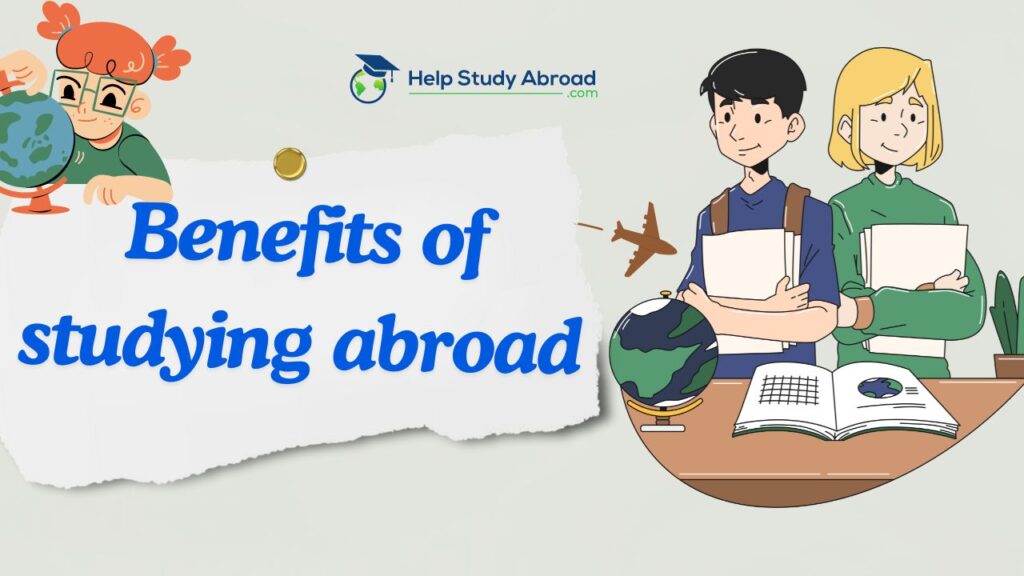Securing a student visa is a critical step in your study abroad journey. The process can be complex and varies from country to country. This comprehensive guide will provide you with the essential information you need to navigate the student visa application process successfully. By the end, you’ll be well-prepared to apply for your visa, and you’ll learn how HelpStudyAbroad.com can support you throughout the process.
Types of Student Visa: Overview of Different Visa Types
Types of student visas vary across countries, catering to different study needs and durations. Key categories include:
- Academic Study Visas: For full-time academic programs, such as the U.S. F-1 visa or the U.K.’s Tier 4 (Student) visa.
- Vocational/Technical Training Visas: Tailored for specialized training, such as the U.S. M-1 visa.
- Short-Term Study Visas: Ideal for brief courses, like the U.K.’s short-term study visa or Canada’s Temporary Resident Visa for short programs.
- Exchange Program Visas: Cultural or academic exchange, such as the US J-1.
- Research or Postgraduate study visa: For advanced studies, for example, subclass 500 by Australia and National Visa issued for Germany to pursue doctoral studies.
- Language Course Visa: For courses to pursue in proficiency in any language offered by most European countries
- Pathway program visa: Student pathway programs leading up to a full-degree enrollment, commonly offered in Australia and Canada.
- The requirements for each visa type are unique, such as proof of enrollment, financial support, and sometimes language proficiency. Many also permit part-time work, which further enhances the experience of students. Knowing the available options helps a student choose the visa that best aligns with his or her academic goals and duration of stay.
Application Process For Student Visa: Step-by-Step Guide
Understanding the application process is crucial for a successful Student visas application. Here is a general step-by-step guide-
- Acceptance Letter: Secure an acceptance letter from your chosen institution.
- Documentation: Gather required documents, including a valid passport, financial proof, and acceptance letter.
- Application Form: Complete the visa application form for your destination country.
- Visa Fee: Pay the visa application fee.
- Interview: Schedule and attend a visa interview, if required.
- Processing Time: Wait for your visa to be processed.
You may follow Ministry Of Home Affairs for further information.
Documentation: Essential Documents Needed For Student Visa
Different countries require different documents for visa applications. Common documents include-
- Valid passport
- Passport-sized photos
- Acceptance letter from the university
- Proof of financial support
- Health insurance
- Visa application form
- Language proficiency test results (if required)
Tips to Overcome Student Visa Application Hurdles
When applying for a student visa, many students face obstacles that can delay the process. Here are common challenges and tips to overcome them:
- Documentation Issues:
- Challenge: Missing or incorrect documents can delay the visa process.
- Tip: Double-check the visa requirements for your destination country. Ensure you have all required documents, including academic transcripts, proof of financial support, and health insurance.
- Financial Requirements:
- Challenge: Some countries have strict financial requirements to prove you can afford your education and living expenses.
- Tip: Prepare bank statements, scholarship offers, or sponsor letters to demonstrate sufficient funds. Consider working with a financial advisor if necessary.
- Visa Interview Preparation:
- Challenge: The visa interview can be daunting, with applicants sometimes failing to convey their intentions clearly.
- Tip: Practice answering potential questions about your study plans, future goals, and why you’ve chosen a specific institution. Being confident and well-prepared can make a difference.
- Processing Delays:
- Challenge: Processing times can vary, and delays are common, especially during peak seasons.
- Tip: Apply early to allow extra time for any unforeseen delays. Stay updated on processing timelines through your country’s consulate or embassy website.
- Language Barriers:
- Challenge: Some visa applications require proficiency in the local language or English.
- Tip: If language proficiency is an issue, take preparatory language courses or take standardized tests like IELTS or TOEFL to improve your chances.
By addressing these challenges proactively, you can increase your chances of securing your student visa and preparing for a smooth study abroad journey.
Conclusion: Encouraging Proactive Planning For Student Visa
Types of visas, the application process, and the required documentation, you can navigate this process with confidence.
Call to Action: Need help with your visa application? At HelpStudyAbroad.com, we provide expert assistance to ensure a smooth and successful visa application process. For further enquiry, follow our official website HelpStudyAbroad.com.



